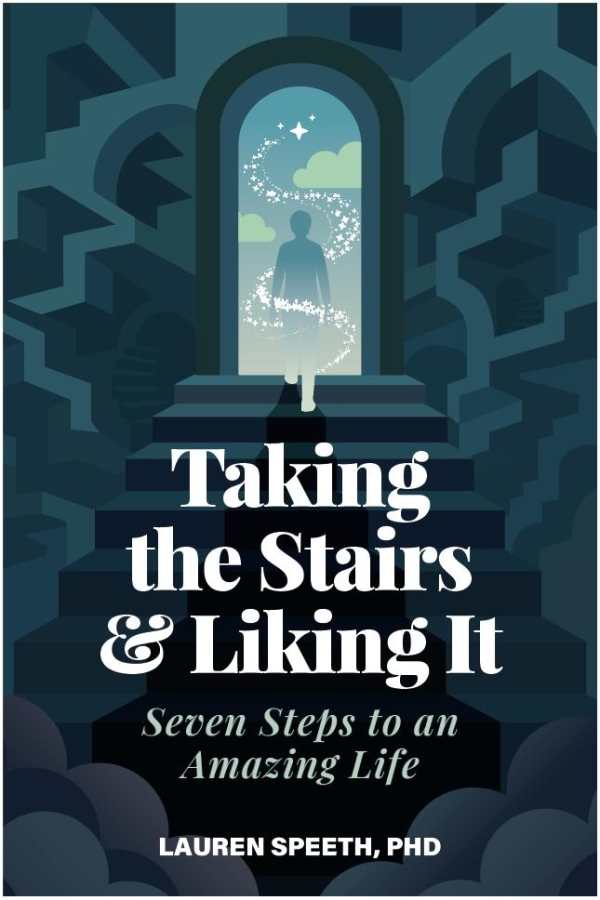
Taking the Stairs & Liking It
Seven Steps to an Amazing Life
Informative and uplifting, the self-help guidebook Taking the Stairs & Liking It models empathetic, values-based self-improvement.
Lauren Speeth’s Taking the Stairs & Liking It is a polished motivational guidebook rooted in personal growth and ethical living, built on a seven-step framework derived from a serendipitous conversation with President Jimmy Carter.
Introducing a spiritualized but secular set of principles for self-development involving vision, partnership, and staying power, the book glows with gratitude and sincerity. Part memoir, part methodology, it opens with the story of Speeth’s unlikely meeting with President Carter, who became the moral inspiration and intellectual scaffolding for her work. She used the seven principles covered herein as a guide through her own professional and personal transformation and now suggests them as a universal prescription for living a fulfilling life.
The book is prone to conceptual vagueness, though, in part because of its overreliance on its personal narrative for support. Its overwhelming optimism also obscures the complexities of personal struggles. And while the chapters devoted to each step are thick with anecdotes, student insights, and action-oriented advice and questions, Speeth’s own anecdotes dominate early on. The book covers her career in technology, music, and teaching in order to illustrate its methods, but in covering her dynamic and service-oriented life, even with humility, it does not impart a clear sense that what worked for her could translate across other lived realities well.
One of the book’s central arguments is that success and fulfillment are within reach for anyone who is willing to clarify their vision and pursue it with patience, intention, and generosity. Anchored in moral philosophy and anecdotal wisdom, it often draws on President Carter’s writings and interviews for support. Occasional references to classical thinkers including Seneca and Aristotle also factor in, resulting in gravitas. Still, the book’s central claims are not always well-grounded. It gestures toward research, as with a medical journal’s encouragement to take 6,500 steps a day on average, but there is little in the way of rigorous citation or sustained engagement with psychological or social science literature. Indeed, the book’s arguments are most often personal and ethical rather than empirical. And while Speeth’s story of personal realignment through mindful living and community engagement is inspiring, most of the resultant proposals are quite intuitive.
The language throughout is inviting, accessible, and inclusive. The frequent use of “we” and “you” aligns with its intimate tone. Photographs, graphics, and diagrams complement the text, including a hand-drawn “Rubric Cube” of purpose, though they seldom clarify its more abstract ideas. Values of kindness, spiritual openness, and service-driven personal growth are upheld throughout, though, making this a gentle entry point to self-discovery.
Taking the Stairs & Liking It is a warm and encouraging guide to navigating existential questions.
Reviewed by
pine breaks
Disclosure: This article is not an endorsement, but a review. The publisher of this book provided free copies of the book and paid a small fee to have their book reviewed by a professional reviewer. Foreword Reviews and Clarion Reviews make no guarantee that the publisher will receive a positive review. Foreword Magazine, Inc. is disclosing this in accordance with the Federal Trade Commission’s 16 CFR, Part 255.
